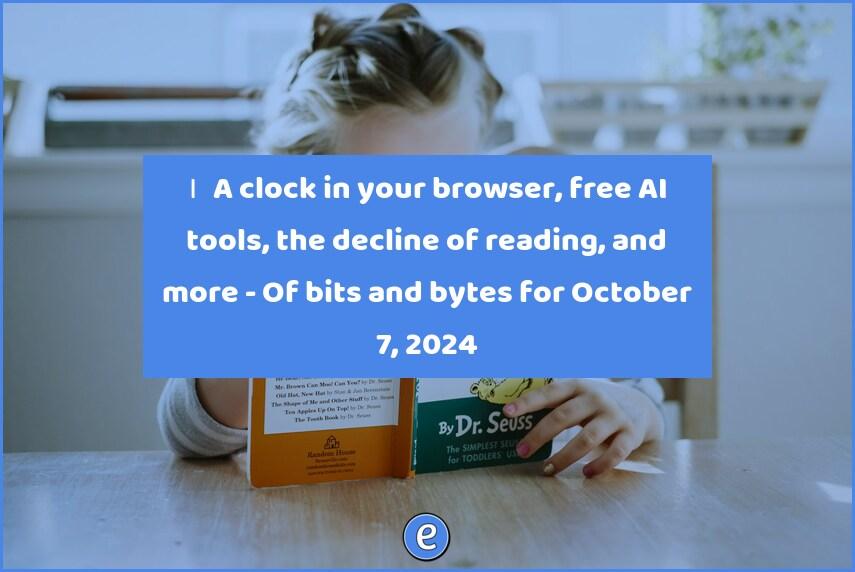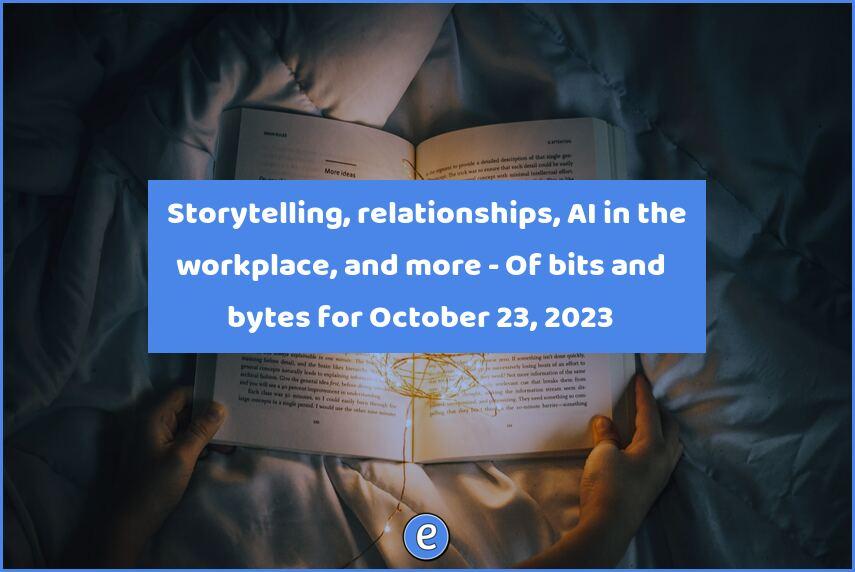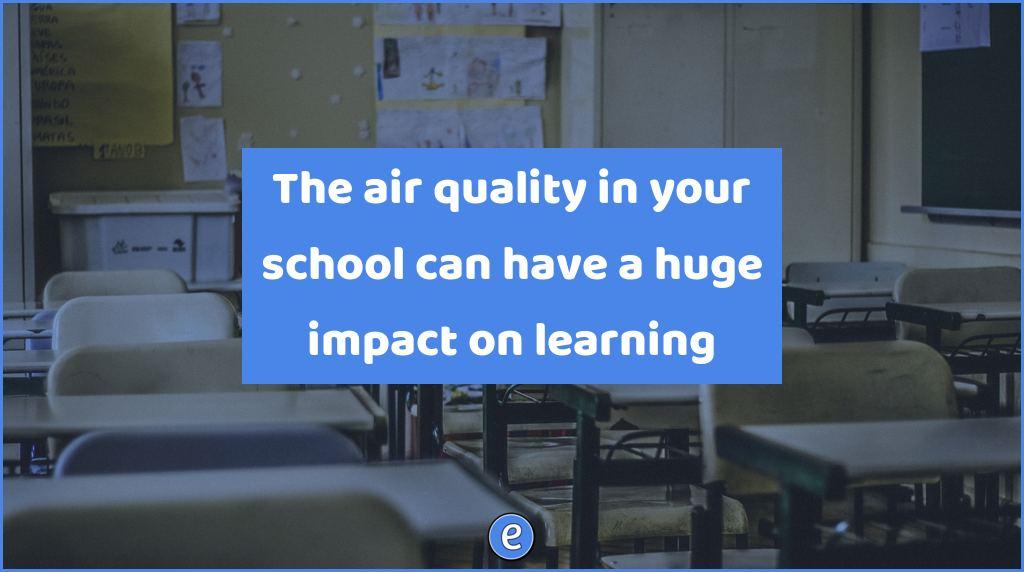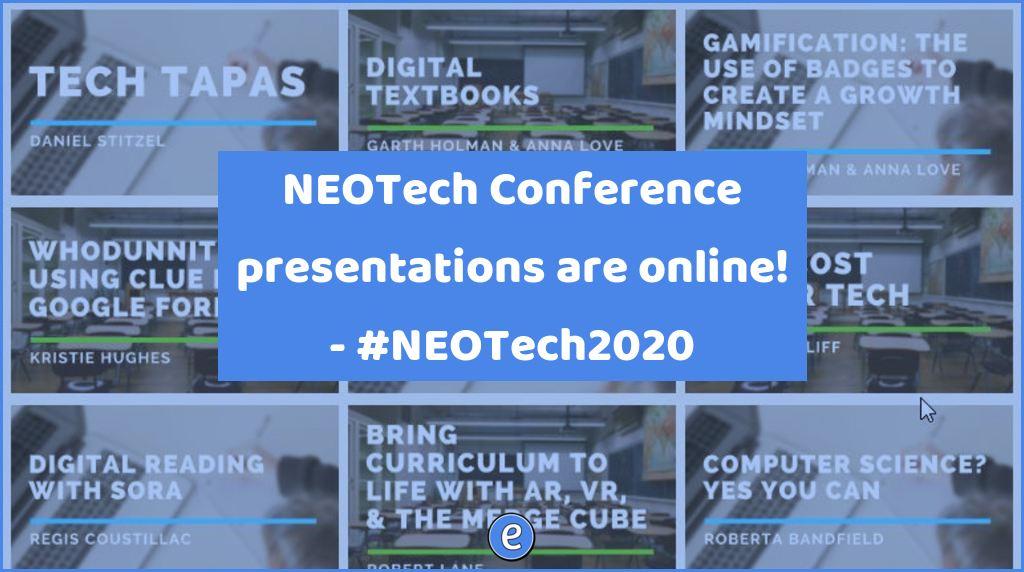🙋♂️ A clock in your browser, free AI tools, the decline of reading, and more – Of bits and bytes for October 7, 2024
Internet Travels
Of bits and bytes is my weekly round up of interesting links and ideas I discovered on the internet. It is published on Mondays for the previous week
I like to turn on autohiding for the taskbar when I’m on Windows or a Chromebook, but then I miss having an easy to see clock. There are several extensions for Chrome and Firefox that will put a clock in your browser toolbar, but the problem is that the clock is pretty small because it has to fit into the space of one icon. All hope was lost until I found two separate extensions, Just a Clock – the Hours and Just a Clock – the Minutes.
Instead of trying to fit the entire clock into the space of one toolbar icon, these extensions out the current hour in one and the minutes in the other. Once you re-arrange the toolbar icons, you have a readable clock:
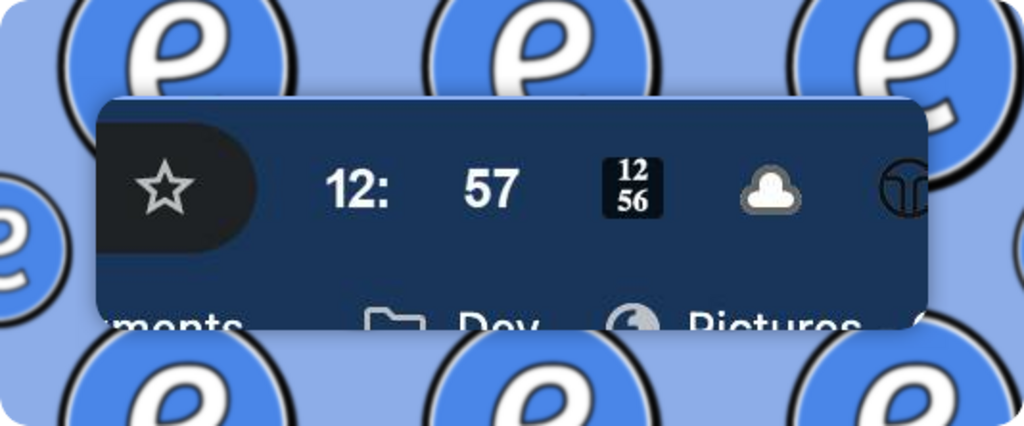
The extension I used before is Clock for Google Chrome, and it still installed because I like being able to pull up a full calendar right from the toolbar.
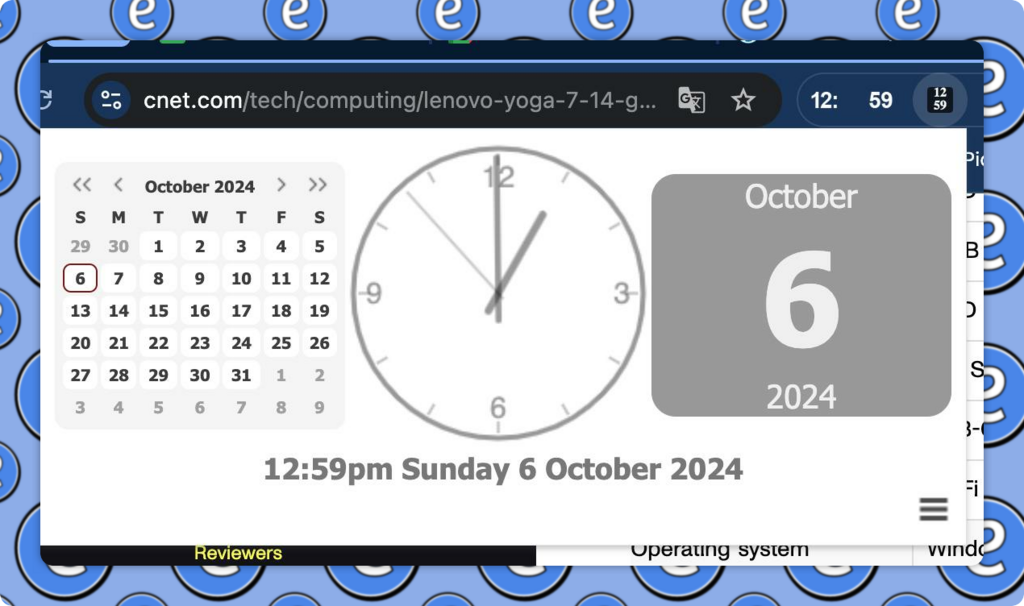
Learn21 is a proud sponsor of Eduk8me and the Of Bits and Bytes newsletter. Read more about their mission at Learn21.
Apps
Gmail’s new summary cards are here to neatly organize your purchases, events, bills, and travel info. These cards showcase real-time updates with action buttons, like setting calendar events or tracking packages. These features are currently rolling out on Android and iOS.
Miguel Guhlin’s discusses some completely free, secure, and easy-to-use AI tools from Restream.io for video and audio transcription, converting videos, camera testing, and even AI-generated scripts for TikTok and YouTube. No accounts are necessary, simply access these tools with the website.
MathGPT allows you to upload a picture of your math question and get a step-by-step solution. The site can also generate video explanations of each step. I tried it out with a math teacher, and it continually read the picture wrong, but it’s steps were correct, so your mileage may vary.
Google’s NotebookLM now lets you add YouTube URLs and audio files, making it easier than ever to dig deep into your resources. You can analyze videos with inline citations linked to transcripts, search transcribed audio, and create comprehensive study guides with just a click. Plus, Audio Overviews can now be shared with a public link.
Pedagogy
A recent Associated Press report highlights that young folks aren’t reading for fun anymore — only 14%, down from 27% back in 2012. Also, they’re not tackling whole books in class much either. This shift, likely in response to perceived short attention spans and the push for standardized test prep, is leaving students ill-prepared for college-level reading and writing.
For assigned readings, many students are relying on AI-generated summaries, YouTube videos, and even old-school SparkNotes to keep up with their coursework. Students cite lack of time, balancing jobs and extracurricular activities.
A rising trend among elite college students is their struggle with reading full books, a skill often not required in their high school years. This shift is largely due to changes in educational standards focusing on excerpts rather than entire texts, alongside distractions from smartphones. As a result, many college professors are adjusting by assigning fewer books and lowering expectations while trying to foster deep reading skills.
- These types of music boost productivity, according to science – Fast Company
- The Cell Phone Debate – Who Makes Policy? – Practical Theory
Technology
In a study on physicians and AI such as GPT-4, some intriguing result arose. When used alone, GPT-4 outperformed physicians in diagnostic reasoning. However, when doctors were assisted by GPT-4, their diagnostic accuracy didn’t significantly improve, suggesting a disconnect in the collaboration between humans and AI. The findings underscore that merely having access to powerful AI tools isn’t enough—what’s crucial is how these tools are integrated and trusted within the workflow to truly augment human expertise.
Finally, some common sense is coming to rules governing the creation of passwords. The National Institute of Standards and Technology (NIST) is proposing to ban some password rules, such as mandatory resets and the use of certain characters or security questions. These rules, intended to boost cybersecurity, sometimes backfire by making passwords more predictable. The general takeaway is that the only thing that matters is password length, which at a minimum should be 15 characters. I use Bitwarden and 4 or 5 word passphrases, which give me passwords like Avert6-Dallying-Blasphemy-Remember. Hopefully sites such as Paypal will now let me have a password longer than 20 characters.
One of the sticking points for the dockworkers union in their (now resolved) strike is the fight against automation with a goal of a complete ban on the automation of port equipment like cranes and trucks. This reminds me of a conversation I had with a gentleman who came into Taco Bell and started complaining about the kiosks taking away jobs. Because I was bored that day, I decided to stir the pot and explain how many jobs that kiosk created, from the person who installed it to the programmers who made it functional. He was not amused and stormed off to the local Mexican restaurant.
- 2 new Chromebooks and new AI features to get more done
- Chromebook Plus for teachers – The Keyword
- Beyond the link tax: journalism and the changing nature of the internet – Halifax Examiner
- Harvard experts share how to fix social media — Harvard Gazette
- Hacker plants false memories in ChatGPT to steal user data in perpetuity | Ars Technica
Tips
The BBC has expanded its sound effect library to over 33,000 free samples. This treasure trove includes recordings dating back to the 1920s, with sounds ranging from nature and machinery to reindeer grunts and lively crowds. While these samples are free, they’re licensed for non-commercial purposes only, so they can be used in educational or personal projects.
A young worker found herself reprimanded by her boomer boss for using Excel shortcuts, like the ever-handy CTRL+F, to locate employee names in a sprawling spreadsheet. Rather than welcoming this tech-savvy approach, the boss warned the shortcut could delete something mysterious, preferring instead the traditional scroll-and-search method that had become a tedious norm in the office.
Pop Culture
A study recently found out that the brain syncs differently when autistic and neurotypical individuals interact, compared to two neurotypical folks. Using EEG hyperscanning the researchers saw that synchronization and turn-taking in simple hand movement tasks were less pronounced when a neurotypical person paired up with a person with autism. Interestingly, people with autism were just as capable of mimicry but tended to follow rather than lead. This nods to autism being more of a relational condition, prompting us to think of social interactions as two-way streets where both parties play a part.
Algorithms that a computer can use for sorting can be a pretty dry topic, but this video by Chand John offers a interesting way of viewing two of the types of sorts in a real world fashion.
- This Lost Mozart Composition Hasn't Been Heard for Centuries. Now, You Can Listen to It | Smithsonian
- # W.A. Mozart – Serenate ex C – Ganz kleine Nachtmusik KV648 (official release)
Potpourri
Victoria Livingstone shares her decision to quit teaching, driven by the challenges posed by generative AI tools like ChatGPT. Having spent years teaching writing and literature, Livingstone observed that these AI tools, while helpful, were leading her students to skip the rigorous work that writing demands
Here’s a thread on Reddit that asks ‘Why has there seemingly been little to no improvement in our education practices for decades?’. While I disagree with the using the word ‘improvement’, I will share what I learned when I was researching the history of educational technology. The most mindblowing fact was that it took 30 years for the pencil and paper to become commonplace in the classroom. THIRTY YEARS for a technology that today is viewed as antiquated. Why did it take so long? Teachers were well accustomed to oral teaching and assessments, their curricular materials were designed for an entirely different type of classroom.
Thank you!
Major props if you’ve made it this far, you are a rockstar! Feel free to contact me with questions, ideas, concerns, or your thoughts on the next Marvel movie. In fact, I love to discuss about any topic and then wonder how it intersects with education, so fire away!
“Yesterday is history, Tomorrow is a mystery, but Today is a gift. That is why it is called the present.” – Oogway, Kung Fu Panda

By design, the vast majority of Of Bits and Bytes readers never pay anything for the links, commentary, and tips it provides. But you made it all the way to the end of this week’s edition — maybe not for the first time. Want to support more journalism like what you read today? If so, click here.
Be sure to subscribe to my YouTube channel and join your fellow educators on the Eduk8me email list!
